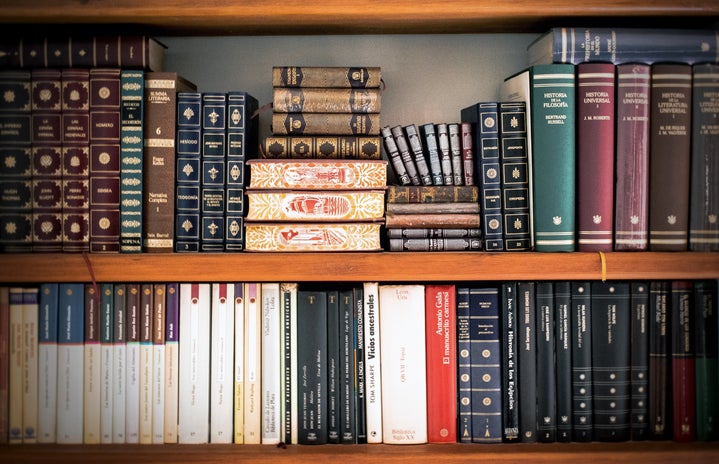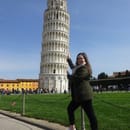On March 24th, people of all ages in nearly 800 cities across the world gathered to participate in the March for Our Lives. Following the devastating events at Stoneman Douglas High School in Parkland, Florida on February 14th, the nation has seen an incredibly inspiring response from the survivors of the shooting. Instead of mourning in sorrow, they rose up and sprang into action by speaking out with their “Never Again” campaign. Just four days after the horrific shooting occurred, a group of Stoneman Douglas students announced their plans for a march in Washington, D.C.—focusing on speaking out about the urgent need for reformed gun laws while also honoring the seventeen classmates that they lost. Thus, the March for Our Lives was born.
In a little over a month, that small group of students singlehandedly organized a national movement—from planning and logistics to raising money and awareness, they revolutionized the fight for stricter gun control laws. Across the country, all eyes were on this group of teenagers, and soon the movement began to spread worldwide. Millions of people all across the world participated in sister marches to show their support and make their voices heard about the need for sweeping change regarding gun control laws in the United States. In fact, several of our fellow Bentley students attended the marches, and fortunately, one of them decided to share her story with us. Below, Annie Canzano (’19, MG), discusses what inspired her to get involved in this influential movement:
“On December 14, 2012, I came home from high school to both of my parents sitting in front of the television, my mother in tears. On the news was the first school shooting that stuck with me. My mother grew up the town over from Sandy Hook and has friends whose children were impacted and photographed immediately following the shooting. I remember my mother saying that this was going to change our gun policies.
Five and a half years later, and it appears that nothing has changed. When I first heard what happened in Parkland, Florida, my stomach dropped. Just as it did with Sandy Hook, with Las Vegas, with the Orlando nightclub, with Aurora’s movie theater, and with the police officer during the Boston bombing. After each shooting, I expected something to change—after all, kids started eating Tide Pods and now they’re locked up at stores. But this issue is more controversial than Tide Pods; it’s not just common sense.
I’m fortunate to have grown up in a family where my parents have been active in our government and in voicing their opinions. After the presidential election, my mother and sister attended the Women’s March on the Boston Common. I was unable to attend because of school. This time, when I heard that the March for Our Lives Movement would also be in Boston on March 24th, I knew I had to go.
On March 24th, my parents, younger sister, and a family-friend met me at Bentley and we went into Boston. My mom had purchased shirts for my sister and I that Lin-Manuel Miranda had created for the march, so we wore those. We stopped at a CVS to buy poster board, because my family came unprepared. After all, we had to voice our opinions.
We had been talking about Hamilton earlier that day, and while I was scrolling through Twitter, I saw something similar. I am definitely not the first, nor only, nor last to use Hamilton as an idea for a sign. We picked the other side because books were an important part of my childhood, and still play a significant role in who I am (it completely does matter that I’m a Ravenclaw!). It amazes me that books can be banned from schools but guns cannot.
While we didn’t do the one-mile march itself, being on the Commons was an incredible feeling. The energy was exciting, plus everyone wanted a picture of our sign. Once it started, they asked all of the students to come to the front—specifically those under the age of 25—so my sister and I went up.
This movement is unique in that it was started by students in support of students. Being around teenagers who were younger than me who believed so strongly in keeping their schools—and world—safe was inspiring. While we waited for the rally to start, music played, and it was then that I realized that we are all still kids, looking to have fun and live, but we are not always fortunate enough to live like that.
There were multiple speakers that day, and while I did not stay for all of them, two of my favorite speakers were two girls. One is a junior at Northeastern, and her younger sister is a student of Parkland. Having that direct connection to the catalyst of this movement was profoundly inspiring. Their speech together was powerful, and proved that while we are still young, we have big dreams and can change our world.
It was purposefully acknowledged that while the leaders of the march from Parkland are predominately white, the stage in Boston was shared with people of all nationalities. Gun violence impacts all people, no matter your gender, race, or religious beliefs. The universality of this issue makes it one that needs to be addressed sooner rather than later.
I left the march knowing that there is hope for our generation, that there is a change coming. It is not going to happen overnight, and I would not expect it to.
Whether you’re on the same side of the aisle as me is beside my point. We all didn’t have the right to vote in the past, but today we do. Register to vote, and more importantly, strengthen your argument and stand up for what you believe in.”



